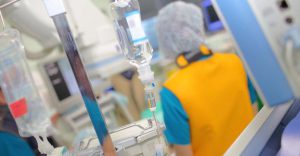Surmodics said that its Preside hydrophilic coatings complement its existing Serene coatings by providing customers with a unique low-friction and low-particulate-generating coating to further enhance distal access for neurovascular applications, as well as improve crossing for challenging coronary lesions or chronic total occlusions.
“Hydrophilic coatings are an essential feature to help medical devices access and navigate tortuous vascular pathways, allowing physicians to reach distal treatment sites for improved therapeutic outcomes,” said Charlie Olson, senior vice president, and president of Surmodics’ Medical Device Coatings business. “We are pleased to secure the first 510(k) device clearance that leverages this new technology.” It sets a new performance standard for the industry, and the medical device manufacturers that Surmodics serves, he added.
Preside hydrophilic coatings bond to a variety of substrates used in market-leading neurovascular, coronary, and peripheral catheters. The coatings are applied via Surmodics’ patented Photolink UV curing process, which covalently bonds surface treatments to substrates at ambient temperature. This technology can easily be incorporated into existing manufacturing processes and can markedly reduce production time and reagent costs compared with thermal-curing and alternative UV-based chemistries and processes, according to Surmodics.
Presuming that the Preside coating has a successful commercial launch, the Eden Prairie, MN–based company is having a pretty good year after going through a rough patch.
In June 2023, its SurVeil drug-coated balloon received FDA approval, which CEO Gary Maharaj called “one of the most important achievements in Surmodics’ history.” The mood was considerably more somber earlier this year in January, when FDA turned down the device for premarket approval. At that time, FDA said the “company’s premarket approval (PMA) application for the highly anticipated device [was] not currently approvable,” reported sister brand MD+DI. The agency sought additional information about the device’s biocompatibility and labeling. Given that a commercialization agreement with Abbott Laboratories worth some $27 million was in play, the market promptly responded: Surmodics shares dropped 30%.
FDA approval in June went some way toward rebuilding that gap, as shares went as high as 16% after the announcement, according to MD+DI.










